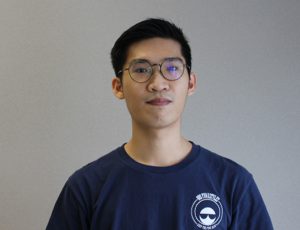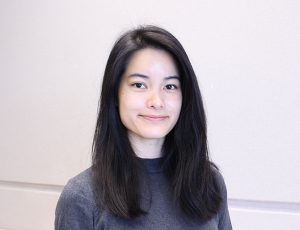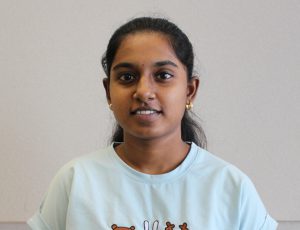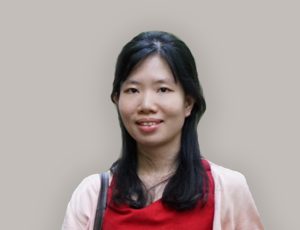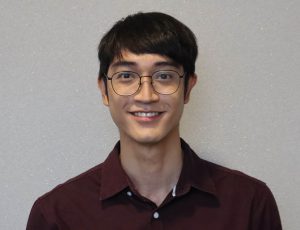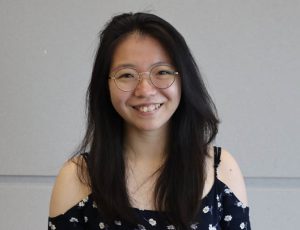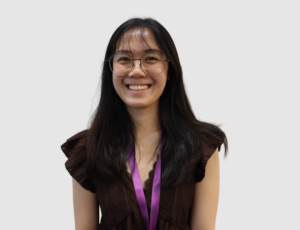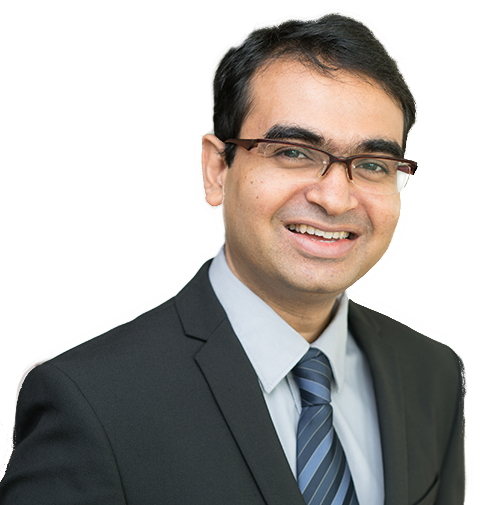
Anand JEYASEKHARAN
Work in the ADJ laboratory focuses on how the immune system recognizes cancer cells upon treatment with DNA damaging chemotherapy. Our eventual aim is to use this information to guide the rational design of immunotherapy-chemotherapy combinations for cancer treatment. Our research involves both fundamental research (molecular and cellular biology of chemotherapy responses) and translational research (using clinical samples) in a variety of cancer types. We have a specific interest in lymphomas; and work closely with colleagues in the NUH Lymphoma team to develop novel therapeutic strategies for clinical use.
csiadj[at]nus.edu.sg
Principal Investigator, Cancer Science Institute of Singapore, NUS
Deputy Director, NUS Centre for Cancer Research
Program Chair, Division of Musculoskeletal Oncology, Sarcoma, National University Hospital
Research Director & Senior Consultant, Department of Haematology-Oncology, National University Cancer Institute, Singapore
Assistant Professor; Department of Medicine, Yong Loo Lin School of Medicine, NUS
Platform lead (Translational Research Integration and Support), Singapore Translational Cancer Consortium (STCC)
|
2025 |
Senior Investigator, National Medical Research Council Clinician Scientist Awards |
|
2021 |
Clinician Scientist Award, National Medical Research Council, Singapore |
|
2016 |
Clinician-Scientist Transition Award, National Medical Research Council, Singapore |
|
2015 |
NUHS Clinician-Scientist Program Award, National University Hospital, Singapore |
|
2014 |
NRF Singapore nomination to attend the 64th Lindau Nobel meeting (Medicine and Physiology) |
|
2011 |
Academic Development Award, National University Hospital, Singapore |
|
2009-2010 |
Junior Research Fellowship, Wolfson College, Cambridge |
|
2005-2008 |
Gates Cambridge Scholarship, Gates Cambridge Trust, University of Cambridge, UK |
We are interested in the effects of genotoxic chemotherapy on the immune mileu in cancer. This interest stems from 2 key observations:
- Defects in DNA repair in cancer contribute to the generation of immunogenic nucleic acids and peptide neo-antigens
- Genotoxic chemotherapy activates innate and adaptive immune responses through immunogenic cell death and cytosolic nucleic acid sensors
We hypothesize that intracellular changes in cancer differentially affect the ability of distinct chemotherapeutics to result in immune clearance of tumours. A comprehensive understanding of these intracellular components that regulate immune activation after DNA damage will facilitate the development of predictive biomarkers for chemotherapy-immunotherapy combination trials.
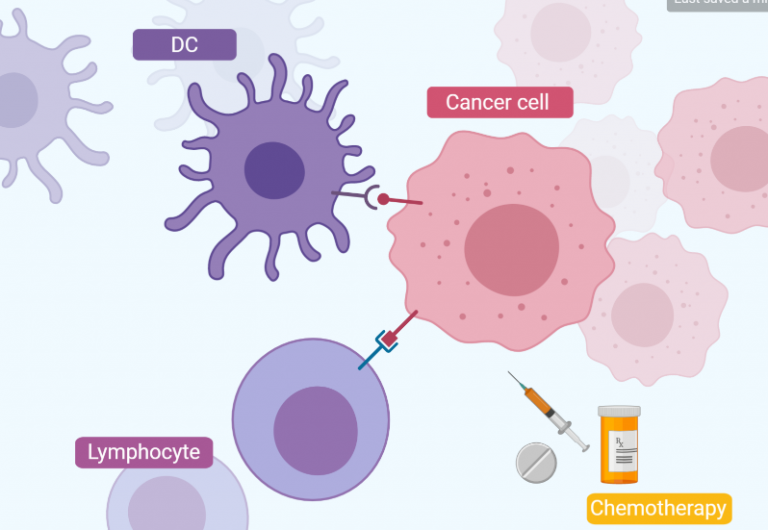
Accordingly, current work in my laboratory spans two broad themes:
1. Intracellular changes in cancer that influence the activation of the immune response after DNA damage
2. Combination strategies to potentiate the action of genotoxic chemotherapy, through cell-intrinsic and cell-extrinsic mechanisms.
To facilitate the above studies, we have:
- Acquired a range of cell line models for epithelial and lymphoid cancers
- Setup systems and assays for DNA repair and immune activation studies in-vitro
- Setup platforms for quantitative microscopy in histological material, to interrogate immune modulation pathways in samples of human cancer
- Established international and local collaborations for the acquisition of well-annotated clinical samples
- Established connections with pharmaceutical companies and medical technology companies, to translate our research findings to clinical trials and biomarker development.
Graduate students and post-doctoral researchers in the lab lead specific projects, and we collaborate with local and overseas colleagues to test our findings in relevant clinical tissue collections. The ADJ lab also hosts overseas elective students, NUH residents and medical students who are interested in translational cancer research. We are committed to promoting diversity in science #heforshe, and a culture of mutual respect #scienceisnotapyramid. ADJ is a DORA signatory; https://sfdora.org/
- Hoppe, M. M., P. Jaynes, F. Shuangyi, Y. Peng, S. Sridhar, P. M. Hoang, C. X. Liu, S. De Mel, L. Poon, E. H. L. Chan, J. Lee, C. K. Ong, T. Tang, S. T. Lim, C. Nagarajan, N. F. Grigoropoulos, S.-Y. Tan, S. S.-S. Hue, S.-T. Chang, S.-S. Chuang, S. Li, J. D. Khoury, H. Choi, C. H. III, A. Bottos, L. J. Gay, H. F. P. Runge, I. Moutsopoulos, I. Mohorianu, D. J. Hodson, P. Farinha, A. Mottok, D. W. Scott, J. J. Pitt, J. Chen, G. Kumar, K. Kannan, W. J. Chng, Y. L. Chee, S.-B. Ng, C. Tripodo and A. D. Jeyasekharan (2023). "Patterns of Oncogene Coexpression at Single-Cell Resolution Influence Survival in Lymphoma." Cancer Discovery: OF1-OF20. doi:10.1158/2159-8290.Cd-22-0998.
- Goh, J., S. De Mel, M. M. Hoppe, M. B. Mohd Abdul Rashid, X. Y. Zhang, P. Jaynes, E. Ka Yan Ng, N. A. D. B. Rahmat, Jayalakshmi, C. X. Liu, L. Poon, E. Chan, J. Lee, Y. L. Chee, L. P. Koh, L. K. Tan, T. G. Soh, Y. C. Yuen, H.-Y. Loi, S.-B. Ng, X. Goh, D. Eu, S. Loh, S. Ng, D. Tan, D. M. Z. Cheah, W. L. Pang, D. Huang, S. Y. Ong, C. Nagarajan, J. Y. Chan, J. C. H. Ha, L. P. Khoo, N. Somasundaram, T. Tang, C. K. Ong, W.-J. Chng, S. T. Lim, E. K. Chow and A. D. Jeyasekharan (2022). "An ex vivo platform to guide drug combination treatment in relapsed/refractory lymphoma." Science Translational Medicine 14(667): eabn7824. doi:doi:10.1126/scitranslmed.abn7824.
- Ho, J. S. Y., B. W.-Y. Mok, L. Campisi, T. Jordan, S. Yildiz, S. Parameswaran, J. A. Wayman, N. N. Gaudreault, D. A. Meekins, S. V. Indran, I. Morozov, J. D. Trujillo, Y. S. Fstkchyan, R. Rathnasinghe, Z. Zhu, S. Zheng, N. Zhao, K. White, H. Ray-Jones, V. Malysheva, M. J. Thiecke, S.-Y. Lau, H. Liu, A. J. Zhang, A. C.-Y. Lee, W.-C. Liu, S. Jangra, A. Escalera, T. Aydillo, B. S. Melo, E. Guccione, R. Sebra, E. Shum, J. Bakker, D. A. Kaufman, A. L. Moreira, M. Carossino, U. B. R. Balasuriya, M. Byun, R. A. Albrecht, M. Schotsaert, A. Garcia-Sastre, S. K. Chanda, E. R. Miraldi, A. D. Jeyasekharan, B. R. TenOever, M. Spivakov, M. T. Weirauch, S. Heinz, H. Chen, C. Benner, J. A. Richt and I. Marazzi (2021). "TOP1 inhibition therapy protects against SARS-CoV-2-induced lethal inflammation." Cell 184(10): 2618-2632.e2617.
- Hoppe, M. M., P. Jaynes, J. D. Wardyn, S. S. Upadhyayula, T. Z. Tan, S. Lie, D. G. Z. Lim, B. N. K. Pang, S. Lim, J. P. S. Yeong, A. Karnezis, D. S. Chiu, S. Leung, D. G. Huntsman, A. S. Sedukhina, K. Sato, M. D. Topp, C. L. Scott, H. Choi, N. R. Patel, R. Brown, S. B. Kaye, J. J. Pitt, D. S. P. Tan and A. D. Jeyasekharan (2021). "Quantitative imaging of RAD51 expression as a marker of platinum resistance in ovarian cancer." EMBO Mol. Med. 13(5): e13366.
- Ngoi, N., J. Lim, S. Ow, W. Y. Jen, M. Lee, W. Teo, J. Ho, R. Sundar, M. L. Tung, Y. M. Lee, E. Ngo, S. W. Lim, J. Ong, F. Lim, G. Bonney, B. Vellayappan, F. Ho, J. Tey, N. Chan, S. de Mel, M. Poon, S. Y. Lee, L. P. Koh, T. C. Liu, L. K. Tan, A. S. C. Wong, A. L. A. Wong, S. E. Lim, A. Yeoh, J. E. Wong, D. Tan, B. C. Goh, W. J. Chng, R. Soo, C. E. Chee, Y. L. Chee, S. C. Lee, A. D. Jeyasekharan for National University Cancer Institute (NCIS) (2020). "A segregated-team model to maintain cancer care during the COVID-19 outbreak at an academic center in Singapore." Ann. Oncol. 31(7): 840-843.
- de Mel, S., M. B. M. Rashid, X. Y. Zhang, J. Goh, C. T. Lee, L. M. Poon, E. H. L. Chan, X. Liu, W. J. Chng, Y. L. Chee, J. Lee, Y. C. Yuen, J. Q. Lim, B. K. H. Chia, Y. Laurensia, D. Huang, W. L. Pang, D. M. Z. Cheah, E. K. Y. Wong, C. K. Ong, T. Tang, S. T. Lim, S. B. Ng, S. Y. Tan, H.-Y. Loi, L. K. Tan, E. K. Chow and A. D. Jeyasekharan (2020). "Application of an ex-vivo drug sensitivity platform towards achieving complete remission in a refractory T-cell lymphoma." Blood Cancer J. 10(1): 9.
- Hoppe, M. M., R. Sundar, D. S. P. Tan and A. D. Jeyasekharan (2018). "Biomarkers for Homologous Recombination Deficiency in Cancer." J. Natl. Cancer Inst. 110(7): 704-713.
- Jeyasekharan, A. D., Y. Liu, H. Hattori, V. Pisupati, A. B. Jonsdottir, E. Rajendra, M. Lee, E. Sundaramoorthy, S. Schlachter, C. F. Kaminski, Y. Ofir-Rosenfeld, K. Sato, J. Savill, N. Ayoub and A. R. Venkitaraman (2013). "A cancer-associated BRCA2 mutation reveals masked nuclear export signals controlling localization." Nat. Struct. Mol. Biol. 20(10): 1191-1201.
- Jeyasekharan, A. D., N. Ayoub, R. Mahen, J. Ries, A. Esposito, E. Rajendra, H. Hattori, R. P. Kulkarni and A. R. Venkitaraman (2010). "DNA damage regulates the mobility of Brca2 within the nucleoplasm of living cells." Proc. Natl. Acad. Sci. U. S. A. 107(50): 21937-21942.
- Ayoub, N., A. D. Jeyasekharan, J. A. Bernal and A. R. Venkitaraman (2008). "HP1-β mobilization promotes chromatin changes that initiate the DNA damage response." Nature 453(7195): 682-686.


